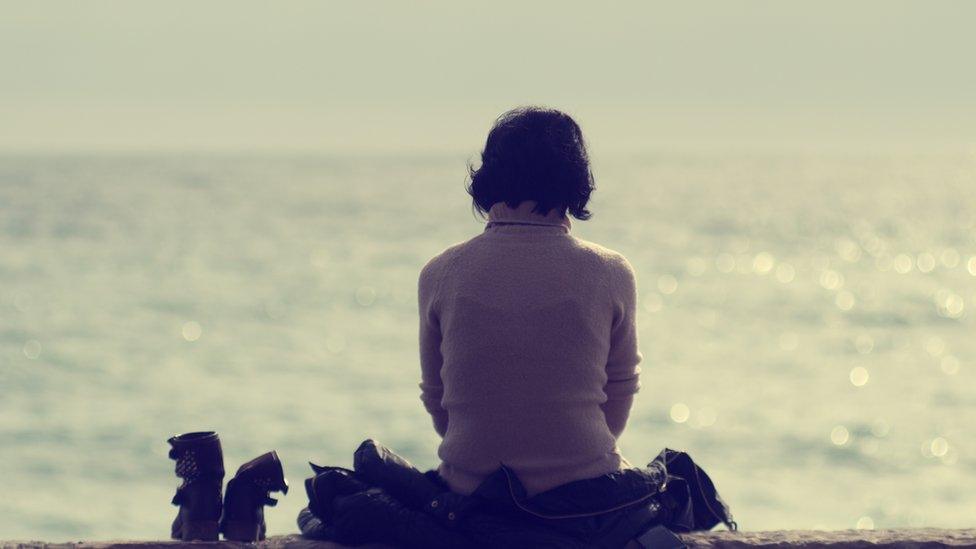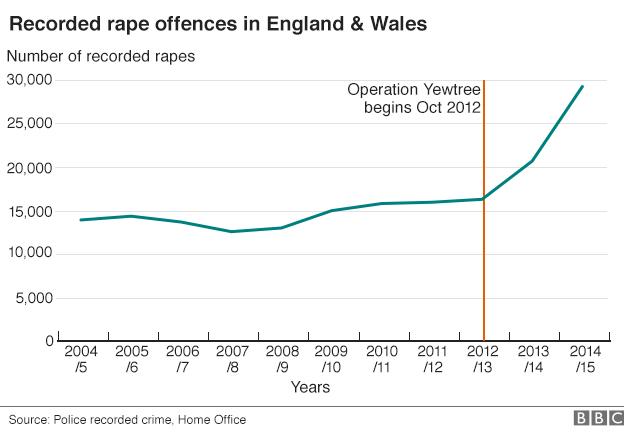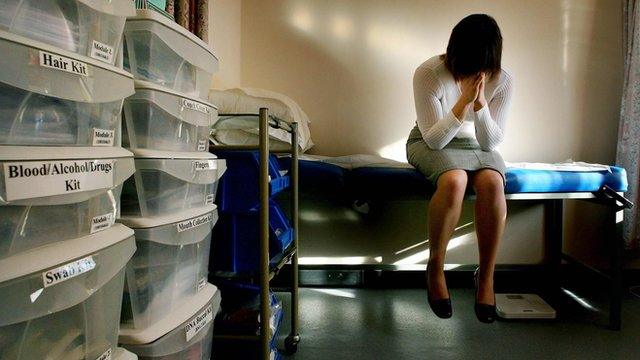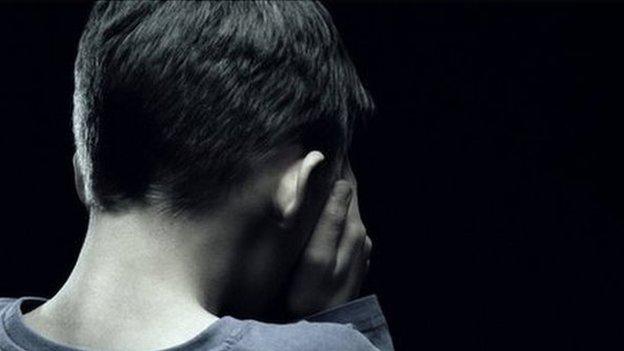New rape data for England and Wales shows regional variation
- Published

The way police and prosecutors deal with rape allegations varies widely across England and Wales, according to an Inspectorate of Constabulary report., external
The proportion of suspects charged with rape in 2014-15 has been falling - and is as low as 6% in one area, it shows.
One in four rape cases involving a child victim led to a prosecution, and one in eight involving an adult victim.
Officials said the data was a starting point to allow people to scrutinise how rape is dealt with in their area.
The investigation by the multi-agency Rape Monitoring Group and published by Her Majesty's Inspectorate of Constabulary (HMIC), brings together data from 42 police force areas.
It found that there were 19,316 rapes against adults and 9,949 against children reported to police during the year 2014-15.
'Important questions'
Some 12% of reported rapes of adults in England and Wales resulted in a suspect being charged or summons being issued.
The rate is almost double when the alleged victim is a child, with 23% of reported rapes resulting in criminal action.
However, there were significant regional variations, possibly reflecting different approaches by police and prosecutors, the report said.

Since news broke of the Jimmy Savile sexual abuse scandal, the number of rapes reported to police has gone up
In Humberside, for example, 35% of child rape cases led to criminal proceedings for rape; in Nottinghamshire the figure for adults was 6%.
Since the Jimmy Savile affair, in October 2012, the number of rapes recorded by police has gone up substantially, BBC home affairs correspondent Danny Shaw said.
But that has not been matched by the number of cases which result in a charge of rape, he said.
For the first time, the report incorporates data on how many reported rapes are transferred to other forces to be investigated, or cancelled as they were recorded as rape "in error", as police subsequently determined that a crime did not take place.
Previously, these cases would have fallen into a category formerly known as "no crimes".

The Gwent Police force had the highest number of adult rape cases "transferred or cancelled" at 13%, whereas Warwickshire had none.
Wendy Williams, chair of the Rape Monitoring Group, said the figures should be treated with some caution as they incorporated data collected in different ways - but overall they offered the most up-to-date picture of how rape cases are handled by the justice system.
"This data provides a starting point to allow people - from the public to police and crime commissioners - to scrutinise how rape is dealt with in their area, and ask important questions of the local criminal justice services.
'Common offence'
Campaigners welcomed the HMIC's decision to make the data available for public scrutiny.
Sarah Green, from the End Violence Against Women coalition, said: "If we are to increase justice for rape we need to know what is happening in terms of reporting to the police and prosecutions all over the country.
"The figures confirm what we know - rape is a very common offence."
Katie Russell, national spokeswoman for Rape Crisis England & Wales said rape was still hugely under-reported in comparison to other crimes.
"Survivors often live alone with their experiences for years before disclosing what's happened to them," she said.
"Today's figures might also suggest a steady improvement in the way police record sexual offences, which we of course welcome."
- Published16 October 2014

- Published31 January 2014

- Published12 March 2015
